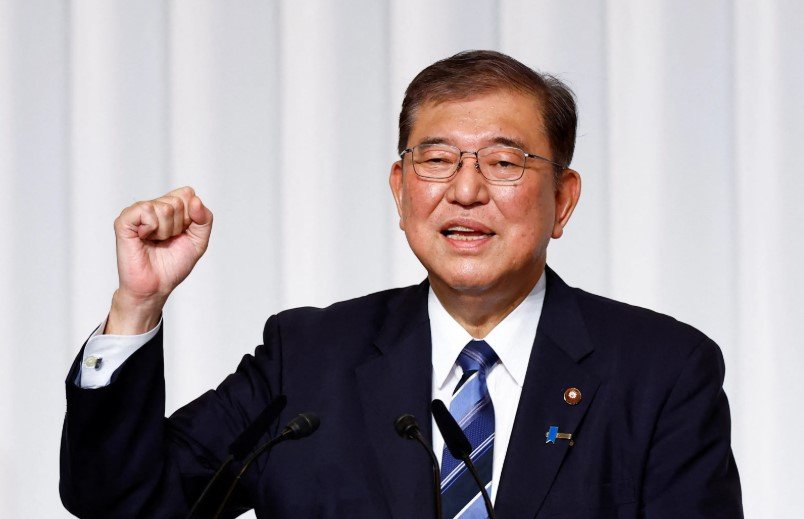First time in 70 years LDP-led coalition fails to control either chamber of Japan’s Diet
In a stunning blow to Japan’s political establishment, Prime Minister Shigeru Ishiba’s ruling coalition has lost its grip on the upper house of parliament for the first time in the Liberal Democratic Party’s (LDP) 70-year history. Early results and projections from public broadcaster NHK suggest the LDP and its junior partner Komeito will fall short of the 125-seat threshold needed to maintain a majority, casting deep uncertainty over Ishiba’s political future.
Though Ishiba, once considered a stabilizing technocrat with a hawkish edge, said he would remain in office “for now,” the Sunday election result has put both his leadership and Japan’s near-term policy agenda into limbo.
A Coalition Crumbles
NHK’s projections, released just after midnight Monday, indicated that while the ruling alliance had secured 75 uncontested seats prior to the vote, it had managed to win only 48 out of the 125 seats being contested — falling short by at least two seats to retain a majority.
By contrast, the upstart Japan Renewal Party (JRP), a populist-nationalist movement led by Osaka Governor Hiroki Maekawa, surged ahead in urban constituencies and among disaffected younger voters.
In Tokyo’s contested districts, turnout hit a record 69%, driven by what analysts described as “fatigue with the status quo” and a generation increasingly estranged from the LDP’s consensus-driven politics.
“This was not just an election loss. This was a generational verdict,” said Ayako Inoue, political analyst at Keio University. “The post-war order built by the LDP is being challenged by voters who feel left behind.”

What’s at Stake Now for Ishiba
Shigeru Ishiba, 67, a former defense minister known for his strategic focus on national security and rare openness to constitutional reform, had called the upper house elections a “referendum on responsibility” following Japan’s economic stagnation and controversial military aid packages to allies like Taiwan and the Philippines.
But as the numbers rolled in Sunday night, his rhetoric gave way to forced smiles and terse apologies at the LDP’s Tokyo headquarters.
Still, Ishiba struck a defiant tone.
“The message from voters is loud and clear,” he said. “We must listen. But governance does not stop. I will not abandon the wheel.”
Whether his party — or coalition partner Komeito — agrees, is another matter. Internal rumblings have already begun, with LDP faction leaders reportedly calling emergency meetings on Monday morning to assess Ishiba’s standing.
Understanding the Numbers
A quick snapshot of how the vote tallied up:
| Political Party | Contested Seats Won | Total (Including Uncontested) | Status |
|---|---|---|---|
| LDP + Komeito (ruling) | 48 | 123 | Fell short |
| Japan Renewal Party (JRP) | 32 | 32 | Gained big |
| Constitutional Democrats | 22 | 24 | Minor gains |
| Japanese Communist Party | 9 | 10 | Stable |
| Independents/Others | 15 | 19 | Swing voters |
The coalition needed 50 wins in addition to its 75 uncontested seats to maintain control — but it fell short by two. Even with possible late recounts or court challenges, analysts believe the broader message is irreversible: Japan’s ruling consensus has cracked.
Why This Election Mattered More Than Most
Though the upper house is often seen as the less powerful chamber, its ability to delay legislation, block appointments, and shape foreign policy has grown in recent years.
For Ishiba, this particular election had symbolic weight. He had hoped to pass an ambitious national security bill before the end of the year, allowing Japanese troops greater latitude to operate overseas. That now appears dead on arrival.
Moreover, key domestic issues like inflation relief, energy reform, and social security expansion could stall, as the government faces increased resistance not only from opposition parties but from within its own ranks.
Key triggers behind the ruling coalition’s collapse:
-
Surging cost of living: Urban and rural voters alike cited inflation, stagnant wages, and housing insecurity.
-
Unpopular defense policies: Ishiba’s defense spending surge was criticized as reckless amid economic slowdown.
-
Youth turnout: Young voters overwhelmingly chose alternatives like JRP and independents.
-
Coalition fatigue: Komeito’s conservative base is increasingly at odds with the LDP’s hardline faction.
Global Implications: Uncertainty for Allies
Japan’s leadership wobble comes at a precarious time for Asia’s balance of power. With Taiwan’s elections approaching and tensions high in the South China Sea, Tokyo’s role as a regional bulwark is under scrutiny.
Foreign governments, including the U.S., are closely watching for signs of instability. A White House National Security Council official, speaking on background Sunday evening, said Washington had “full confidence in Japan’s democratic process,” but declined to comment on Ishiba’s leadership.
Markets, too, were rattled. The Nikkei opened down nearly 2% on Monday morning, with defense and infrastructure stocks particularly hit.
One Bullet Point That Captures the Mood
-
“Losing the upper house might be a turning point not just for Ishiba, but for the entire LDP model of governance,” says Keio’s Ayako Inoue. “We’re watching a historic reset in real time.”
The Road Ahead
For now, Ishiba holds onto his position — technically. But few expect him to survive without challenge when the LDP holds its party leadership election in September. Names like former Foreign Minister Sanae Takaichi and LDP Secretary-General Toshihiro Nikai are already being floated as potential successors.
If Ishiba steps down or is forced out, Japan may see its third prime minister in just five years — a return to the revolving-door politics many thought had been buried a decade ago.
